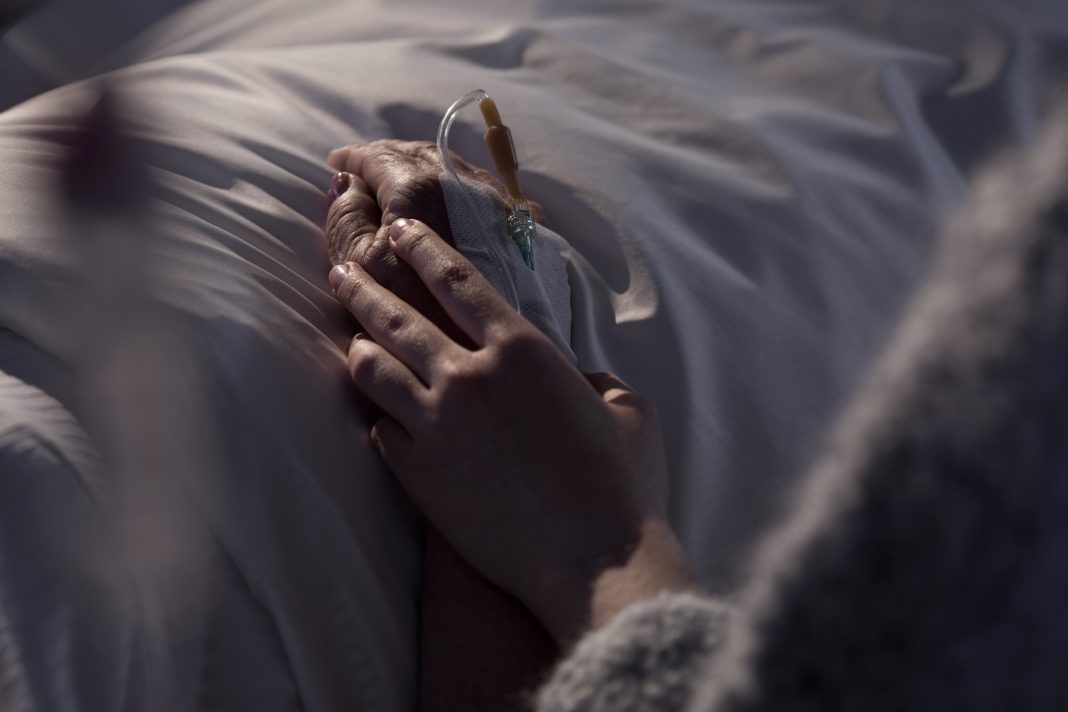Santosh Rao, Channing J. Paller, Ana Maria Lopez, Eugene Ahn, Jodi MacLeod, Ting Bao, and Linda E. Carlson, from the Society for Integrative Oncology, detail how integrative oncology is transforming cancer care
Cancer is a leading cause of death and suffering worldwide, with nearly 20 million new diagnoses and 10 million deaths in 2020. (1) Modifiable lifestyle factors – poor nutrition, sedentary lifestyle, excess weight, metabolic risk, tobacco exposure, and alcohol use – contribute significantly to cancer incidence and mortality. (2)
Improvements in cancer screening and treatment have led to increased survival, but cancer survivorship is often accompanied by comorbidities and treatment-related symptoms. Fatigue, pain, anxiety, depression, neuropathy, sleep disturbance, and cognitive impairment are common and require clinical intervention. Integrative oncology has demonstrated success in addressing many of these concerns and has the potential to transform cancer care.
The Society for Integrative Oncology (SIO) has defined Integrative Oncology as: “…a patient-centered, evidence-informed field of cancer care that utilizes mind and body practices, natural products, and/or lifestyle modifications from different traditions alongside conventional cancer treatments. Integrative oncology aims to optimize health, quality of life, and clinical outcomes across the cancer care continuum and to empower people to prevent cancer and become active participants before, during, and beyond cancer treatment.” (3)
Integrative oncology is practiced in conjunction with conventional cancer care, not as an “alternative”. The use of alternative cancer treatments instead of standard cancer therapy has been associated with poorer outcomes, including greater mortality. (4) The National Institute of Health’s Center for Complementary and Integrative Health replaced the term “alternative” in its name with “integrative.” (5) Professional organizations, scientific journals and government agencies have since followed suit.
NCI-designated cancer centers increasingly offer integrative therapies such as acupuncture, massage, meditation, yoga, nutrition counseling, advice on exercise, dietary supplements and natural products. (6) The integrative approach includes interventions that often have fewer side effects than pharmaceuticals, and can improve overall health. (7)
Traditional healing practices
Integrative oncology includes traditional healing practices for which there is an evidence base. In some world regions, traditional practices exist alongside standard allopathic therapies and are readily accessible to people with cancer. Acknowledging the need for more research in Indigenous and traditional healing practices, the National Cancer Institute convened a Virtual Meeting: International Perspectives on Integrative Medicine for Cancer Prevention and Cancer Patient Management in 2020. (8)
Need for guidance in integrative oncology care
Patients commonly seek integrative care approaches, although they do not always share their interest or use of integrative therapies with their healthcare teams. Similarly, many health professionals do not feel sufficiently informed to give appropriate advice to their patients. (9) Knowledgeable guidance from the patient’s own healthcare team facilitates a coordinated, personalized, and integrated integrative oncology care recommendation that provides symptom-relief, improves quality of life, and enhances a sense of empowerment as a participant in their own care. Studies regarding biological correlates of integrative therapies and their potential impact on recurrence are ongoing.
Integrative oncology guidelines
SIO has published multiple evidence-based clinical practice guidelines using standard methodology. These guidelines, although not prescriptive, impact clinical practice and shared decision-making founded on the best evidence available. In 2014 “SIO Guidelines; Clinical Practice Guidelines on the Use of Integrative Therapies as Supportive Care in Patients Treated for Breast Cancer” was published in short form, (10) updated and expanded in 2017, (11) and endorsed by American Society of Clinical Oncology (ASCO) in 2018. (12) This guideline has been downloaded more than 67,000 times to date. In 2022, SIO and ASCO co-sponsored the “Integrative Medicine for Pain Management in Oncology: Society for Integrative Oncology-ASCO Guideline”. (13) As produced by two international organizations, the SIO-ASCO guideline is being disseminated globally to inform evidence-based integrative oncology care and is the first in a series of co- operative SIO-ASCO guidelines for symptom management through integrative modalities. The National Comprehensive Cancer Network (NCCN) Guidelines, which are often used by policymakers to set standards of care, have also included integrative oncology interventions for symptom management and survivorship care, supporting integrative oncology as part of standard oncology care.
Barriers to guideline implementation
Lack of insurance coverage for integrative oncology recommendations limits access and inhibits guideline implementation. (14) Insurance coverage for the recommended integrative modalities also varies globally, which leads to imbalances in the availability of treatments depending on which countries people reside. Limitations in insurance coverage confer out-of-pocket costs for guideline-based care, contributing to health inequities.
Clinical Practice Guideline recommendations are often prerequisites for insurance coverage but are rarely sufficient alone for widespread insurance adoption without accompanying advocacy efforts. Further research on the clinical and cost efficacy of integrative oncology can help drive policy discussions. Designing healthcare delivery models that meet global health equity challenges can support integrative oncology care implementation in all communities. Insofar as integrative oncology practices emphasize patient-centred care, they uniquely support culturally informed care. Integrative oncology research seeks to advance access to equitable and comprehensive integrative cancer care across global communities.
Integrating integrative oncology into cancer care worldwide
Ongoing rigorous investigation will identify best use applications and delivery methods for various complementary therapy approaches. Part and parcel of disseminating the evidence will include sharing implementation science approaches for integrative oncology through the education of health professionals, patients, and caregivers. Giving patients access to the best, evidence-based care, including integrative oncology, regardless of income level or location can be transformative.
References
1. World Health Organization. International Agency for Research on Cancer. The Global Cancer Observatory. December 2020. https://gco.iarc.fr/today/data/factsheets/cancers/39-All-cancers-fact-sheet.pdf
2. The Global Burden of Cancer Attributable to Risk Factors, 2010-19; A Systematic Analysis for the Global Burden of Disease Study 2019. Lance. 400 (10352, p563-91, Aug 20, 2022).
3. Witt CM, Balneaves LG, Cardoso MJ, et al. A comprehensive definition for integrative oncology. J Natl Cancer Inst Monogr. 2017;2017(52):lgx012. doi:10.1093/jncimonographs/lgx012.
4. Johnson SB, et al. Complementary medicine, refusal of conventional cancer therapy, and survival among patients with curable cancers. JAMA Oncol. 2018;4:1375–1381. doi: 10.1001/jamaoncol.2018.2487.
5. National Institutes of Health Press Release. NIH complementary and integrative health agency gets new name: The National Center for Complementary and Alternative Medicine is now the National Center for Complementary and Integrative Health. December 17, 2014. https://www.nih.gov/news-events/news-releases/nih-complementary-integrative-health-agency-gets-new-name
6. Yun H. et al. Growth of Integrative Medicine at Leading Cancer Centers Between 2009 and 2016: A Systematic Analysis of NCI-Designated Comprehensive Cancer Center Websites. J Natl Cancer Inst Monogr. 2017 (52), Nov 2017.
7. Latte-Naor S, Mao JJ. Putting Integrative Oncology into Practice: Concepts and Approaches. J Oncol Pract. 2019 Jan; 15(1): 7–14. doi: 10.1200/JOP.18.00554.
8. National Cancer Institute. Virtual Meeting: International Perspectives on Integrative Medicine for Cancer Prevention and Cancer Patient Management. October 27-30, 2020. https://www.cancer.gov/about-nci/organization/cgh/events/integrative-medicine-cancer-prevention-cancer-patient-management
9. R Lee et al. National Survey of US Oncologists’ Knowledge, Attitudes, and Practice Patterns Regarding Herb and Supplement Use by Patients with Cancer. JCO Vol 32 (36), Dec 20, 2014.
10. Greenlee H, Balneaves LG, Carlson LE, et al. Clinical practice guidelines on the use of integrative therapies as supportive care in patients treated for breast cancer. J Natl Cancer Inst Monogr 2014;2014(50):346– 358; doi: 10.1093/jncimonographs/lgu041.
11. Greenlee H, DuPont-Reyes MJ, Balneaves LG, et al. Clinical practice guidelines on the evidence-based use of integrative therapies during and after breast cancer treatment. CA Cancer J Clin 2017;67(3):194–232; doi:10.3322/caac.21397.
12. Lyman GH, Greenlee H, Bohlke K, et al. Integrative therapies during and after breast cancer treatment: ASCO endorsement of the SIO clinical practice guideline. J Clin Oncol 2018;36(25):2647–2655; doi: 10.1200/JCO.2018.79.2721.
13. Mao J et al. Integrative Medicine for Pain Management in Oncology: Society for Integrative Oncology-ASCO Guideline. JCO, DOI: 10.1200/OP.22.00622 JCO Oncology Practice, Oct 19, 2022.
14. National Institutes of Health. National Center for Complementary and Integrative Care. Paying for Complementary and Integrative Health Approaches. 2016. https://www.nccih.nih.gov/health/paying-for-complementary-and-integrative-health-approaches
Contributors
Santosh Rao, MD, ABOIM President-Elect
Society for Integrative Oncology
Tel: +1 (202) 964 0824
santosh.rao@uhhospitals.org
www.integrativeonc.org
Channing Paller, MD
Vice President of Advancement Society for Integrative Oncology
cpaller1@jhmi.edu
Tel: +1 (202) 660 6500
www.integrativeonc.org
Ana Maria Lopez, MD, MPH, MACP Treasurer
Society for Integrative Oncology
AnaMaria.Lopez@jefferson.edu
Tel: +1 (215) 503 6413
www.integrativeonc.org
Eugene Ahn, MD
Vice President of Communications Society for Integrative Oncology
Eugene.Ahn@ctca-hope.com
Tel: +1 (847) 972 5861
www.integrativeonc.org
Jodi MacLeod, BA
Secretary
Society for Integrative Oncology
jodi.write4wellness@gmail.com
www.integrativeonc.org
Ting Bao, MD, MS
Immediate Past President Society for Integrative Oncology
baot@mskcc.org
Tel: +1 (646) 608 8563
www.integrativeonc.org
Linda E. Carlson, PhD, R. Psych President
Society for Integrative Oncology
l.carlson@ucalgary.ca
www.lindacarlson.ca
Tel: +1 (403) 355 3207
www.integrativeonc.org











